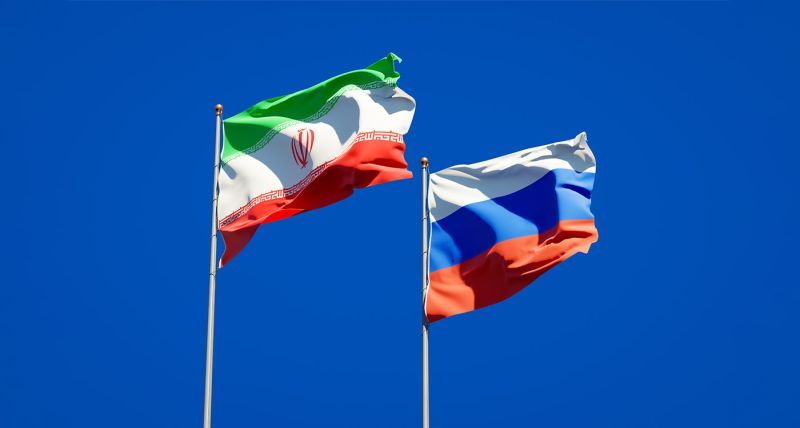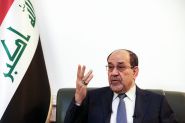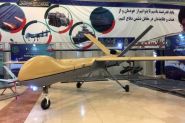- Home
- Middle East
- Russia And Iran Expected To Sign a ‘Strategic Partnership'

Iran and russia ©Shutterstock
Russian President Vladimir Putin and his Iranian counterpart Massoud Pezeshkian are due to sign a ‘comprehensive strategic partnership’ in Russia on Friday, presented as a new stage in the growing alliance between the two countries.
Subject to international sanctions that restrict trade, Russia and Iran have become close allies in recent years as their confrontation with the United States and Europe has grown.
Tehran and Moscow see themselves, along with Beijing, as counterweights to American influence. They have forged close ties in various sectors and support each other on numerous international issues, from the Middle East to the conflict in Ukraine.
Earlier this week, the Kremlin confirmed that the two countries would be strengthening this union with the signing on Friday of a ‘comprehensive strategic partnership agreement’ by Vladimir Putin and Massoud Pezeshkian, who was on an official visit to Russia.
According to the Russian Presidency, the two leaders will address the press after the signing.
Their meeting will take place a few days before Donald Trump returns to power in Washington, the architect of a policy of ‘maximum pressure’ towards Iran during his first term (2017-2021).
Friday's agreement will cover ‘economic and trade cooperation in the fields of energy, the environment and defence and security issues’, according to the Iranian embassy in Russia last week.
‘This is a step towards creating a fairer and more balanced world. Iran and Russia, aware of their historical responsibility, are building a new order’, wrote Abbas Araghchi, the head of Iranian diplomacy, in an article published by the Russian news agency Ria Novosti.
He said that it was a question of replacing ‘hegemony’ - by which he meant Western hegemony - with ‘cooperation’.
His Russian counterpart, Sergei Lavrov, said on Tuesday that the aim of the treaty was to ‘develop the capabilities’ of both countries, in particular to ‘ensure a reliable defence capability’.
He maintained that the text was ‘not directed against anyone’ and that the West was ‘constantly’ trying to show that ‘Russia, Iran, China and North Korea are preparing something against someone’.
While the contours of this new treaty are still unclear, Moscow concluded one of the same name with North Korea last year. One article of the treaty provides for ‘immediate military assistance’ in the event of armed aggression by a third country.
However, the head of Iranian diplomacy, Abbas Araghchi, was quoted by Russian media this week as saying that the treaty with Tehran was not intended to ‘create a military alliance’ similar to the one sealed between Moscow and Pyongyang.
North Korea has been accused by Kiev and the West of sending soldiers to fight with the Russian army against Ukrainian forces. Moscow and Pyongyang have neither confirmed nor denied this.
Teheran, for its part, has been accused by the West of supplying Russia with explosive drones and short-range missiles, thereby helping the Russian army in Ukraine. Iran rejects these accusations.
The last meeting between Mr Pezeshkian and Mr Putin took place in October at the BRICS summit in Kazan, Russia. At that time, Vladimir Putin called for the ‘positive dynamic’ of economic cooperation to be consolidated.
In particular, Russia wants to develop a logistics corridor - rail and sea - between Moscow, Baku and Tehran, on a north-south axis.
Iran and Russia also have in common the fact that they are allies of deposed Syrian President Bashar al-Assad, who was overthrown on 8 December by an offensive led by a coalition of rebels dominated by Islamists.
With AFP.
Read more



Comments